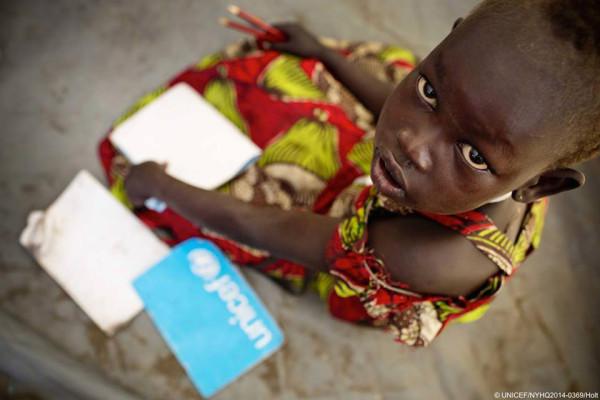Almost 30 million children are out of school in emergency or conflict affected countries following the targeting of schools and the displacement of millions of children forced from their homes and studies, the United Nations Children’s Fund (UNICEF) on 8 September 2014 said.
Schools Stuck by Bullets, Set on Fore, Looted– Students, Teachers Killed, Abducted…
“Being able to continue learning provides a sense of normalcy that can help children overcome trauma, and is an investment – not only in individual children, but in the future strengthening of their societies. Without the knowledge, skills, and support education provides, how can these children and young people rebuild their lives – and their communities?”
A third of schools recently surveyed in the Central African Republic have been struck by bullets, set on fire, looted or occupied by armed forces. Over 100 schools were used as shelters for more than 300,000 people displaced during the most recent conflict in Gaza and now require rehabilitation.
Students and teachers have been killed and abducted in northeast Nigeria, including more than 200 abducted school girls who have yet to be released. In Syria, nearly three million children, half the school population, are now not attending classes on a regular basis. And approximately 290 schools have been destroyed or damaged in recent fighting in Ukraine.
Emergency Education
Bourne outlined how UNICEF supports emergency education through efforts ranging from temporary classrooms and alternative learning spaces for internally displaced and refugee children, to the provision of millions of notebooks, backpacks and other school supplies.
The agency is also supporting self-directed studies for children who can’t leave their homes and will help provide educational radio programmes for children in Ebola-affected countries.
However, despite these emergency education programmes, many initiatives may remain severely underfunded. A record number of emergencies means that more children than ever are at risk and more resources are needed.
“Last year, global emergency education programmes supported by UNICEF only received 2 per cent of all funds raised for humanitarian action, resulting in a $247 million funding shortfall. Education is an essential part of humanitarian response, requiring support and investment from the very onset of a crisis,” Bourne said.
*Source: UN Release.
Also read:
One in Four Young People –175 Million Adolescents– Unable to Read a Single Sentence
Hidden in Plain Sight — New Global Data Expose “Acute Prevalence” of Violence against Children
Violence against Children Is Universal, Deeply Ingrained in Societies, Often Accepted as the Norm
More Than 700 Million Women Alive Today Were Married As Children
By 2020, More Than 140 Million Girls Will Have Become Child Brides – UN
Child Marriages: 39,000… Every Day
India: Saying No to Child Marriage
Pakistan: Girls Tormented by Stigma After Rape
Stop at Least Six Grave Abuses against Children in Conflict
Slavery: Use of Children as Domestic Workers Pervasive Throughout Haiti
Millions of Urban Children at High Risk of Violence, Exploitation and Trafficking
Gaza: 500,000 Children Unable to Return to School
Africa Will Be Home To 4 in 10 Children on Planet Earth By 2050
CAR — Recruitment, Abuse of Children by Armed Groups, Endemic
Grandmothers Raped in Front of Their Grandchildren; Children in Front of Their Parents
One Million People, in Particular Children, Displaced in “Liberated” Iraq
Crisis in Former French Colony Disrupts Schooling of 700,000 Children
Children in Conflicts: Abducted, Recruited, Killed, Maimed, Raped
Caught in Conflicts and Disasters, Millions of Children Need Second Chance at Life
2014 Human Wrongs Watch










